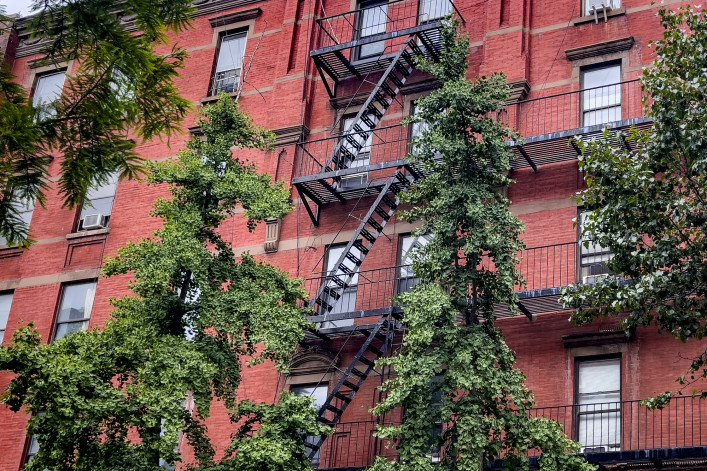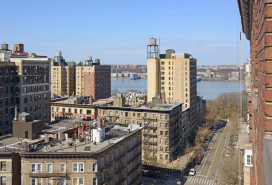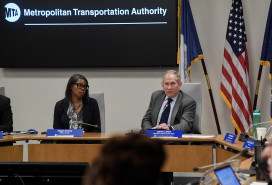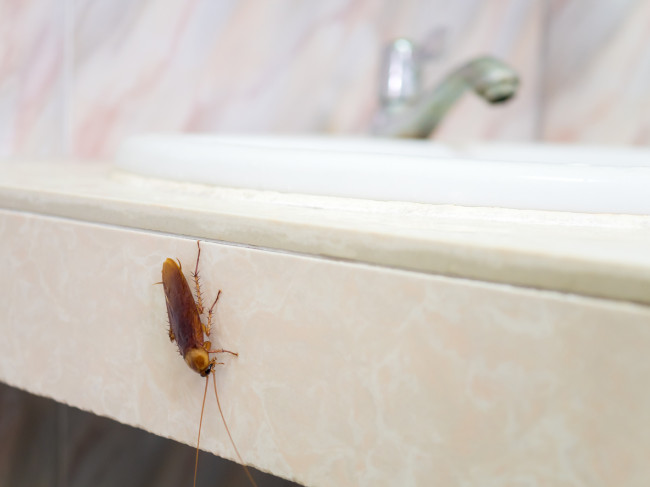3 illegal restrictions your landlord may try to include in your NYC lease. Here’s how to push back
- You have a right to a roommate in NYC, and in most cases, a right to sublet your apartment
- Your landlord is responsible for paying for pest exterminations under the warranty of habitability

Tenants have a right to a pest-free apartment, regardless of what your lease says.
iStock
We at Brick know that leases are far from the most scintillating reading material. But before you sign on the dotted line for your new New York City rental apartment, you should make sure to read through your entire lease—and to watch out for a few problematic clauses.
Your right to live in a pest-free apartment, to have a roommate, and to sublet your unit are protected under state law for most buildings in NYC, regardless of what your lease says. Your landlord may include a clause in your lease that says otherwise.
Whether it’s a mistake or intentional, it’s important to know if there’s a part of your lease that isn’t enforceable under state law. That way you can strike it from your lease before signing, or if you’ve already signed, know when your landlord is trying to skirt the rules. (It’s worth noting that even if a certain provision is illegal, the rest of the lease can still be binding.)
Read on for the three common lease clauses landlords may incorrectly try to enforce:
False clause #1: Tenants must pay for pest exterminations
New Yorkers are no strangers to the mice, bugs, and rats that roam the city. If your apartment is infested, it’s your landlord’s responsibility to get rid of the vermin without any charge to you.
Pest removal is part of their obligation under the “warranty of habitability”—a standard level of service guaranteed by law in every lease, regardless of whether those rules are explicitly stated.
Most landlords acknowledge “that you have a right to an apartment that's habitable,” said Catherine Grad, a tenant rights attorney at Himmelstein, McConnel, Gribben, Joseph (and a Brick sponsor FYI). But we at Brick Underground occasionally see leases that claim otherwise.
Some leases will state that the tenant is responsible for any expense associated with exterminating bed bugs or roaches from the apartment. That’s false; it’s on your landlord to pay for pest control, Grad said.
This was echoed by Jeffrey McAdams, a tenant attorney at McAdams Law.
“The vermin issue is cut and dry,” McAdams said. “New York’s Real Property Law, section 235-B, makes the landlord responsible for the habitability…Vermin in the apartment is a habitability issue.
False clause #2: You can’t have a roommate
Having a roommate in NYC can be crucial for renters looking for a way to mitigate the city’s high rent prices. And tenants have a right to a roommate under state law, regardless of what your lease says.
“If a lease says only you or immediate family can live there, that's not enforceable,” Grad said. “You have a right to a roommate.”
You do have to inform your landlord that you have a roommate within 30 days of when they first moved in for the arrangement to meet state law. But if your lease restricts the occupancy of the apartment to yourself and your immediate family, that specific provision would be “unenforceable,” according to state law.
False clause #3: You can’t sublet
A lease clause that waives your right to sublet the apartment would also be unenforceable under state law. You have a right to sublet your apartment if you live in a market-rate building with four or more units, as long as you follow a few necessary steps.
But that doesn’t mean your landlord has to let you rent out the apartment under any circumstances.
“The landlord has a right to deny a sublet only if the denial is in compliance with the law,” Grad said.
For example, your landlord could reject your subletter if you don’t give the owner proper notice. You need to inform your landlord of your intent to sublease the apartment by certified mail with the term of the sublease, who the sublessee would be, why you want to sublet the unit, and more. And your landlord can ask for more information.
“New York state is very protective of a right to sublet,” McAdams said. “The only limitation that can be placed on that is that it can only be done with permission.”

























